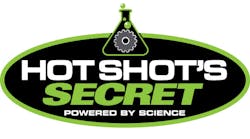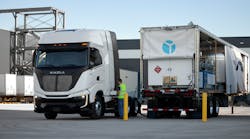Q: Why is diesel fuel mileage less in the winter?
A: Diesel fuel mileage is lower in the winter due to several factors. Many refineries and terminals add kerosene or additives to keep diesel fuel from gelling during cold temperatures. Kerosene has less BTU’s than No. 2 Diesel by about 7.5 percent. While additive BTU’s vary, most of them are less than No. 2 Diesel. The less energy you have in your fuel, the more it takes to make the same power, so you end up having to use more fuel to accelerate and keep your truck at speeds.
Idle time while warming up your truck is also longer in the winter which lowers your overall fuel mileage. Transmission, gear, and engine oil are denser in colder weather and take more energy than lighter viscosity fluids. When air temperatures are colder, the density of the air also goes up. Denser air causes increased wind resistance, so it takes more power to drive constant speeds than it does during warmer weather. A good rule of thumb is that for every 10 degrees cooler in air temperature, you’ll notice a 2 percent increase in wind resistance and about a 1 percent decrease in fuel mileage.
Another factor to consider is rolling resistance of your tires. When your tires and the road are warmer, the tires conform to the road much quicker and use less energy compared to when the tires are cooler, which affects your fuel mileage.
If your fuel mileage is lower in the summer, it’s due to one factor, wind resistance. The sun is out, the air is warm, there are fewer road hazards due to snow and ice, the radio is cranked up, you’re in a good mood and drive faster. You’ll see over 35 percent decrease in fuel mileage at 75 mph versus 55 mph.
Information provided by Lubrication Specialties, Inc.




